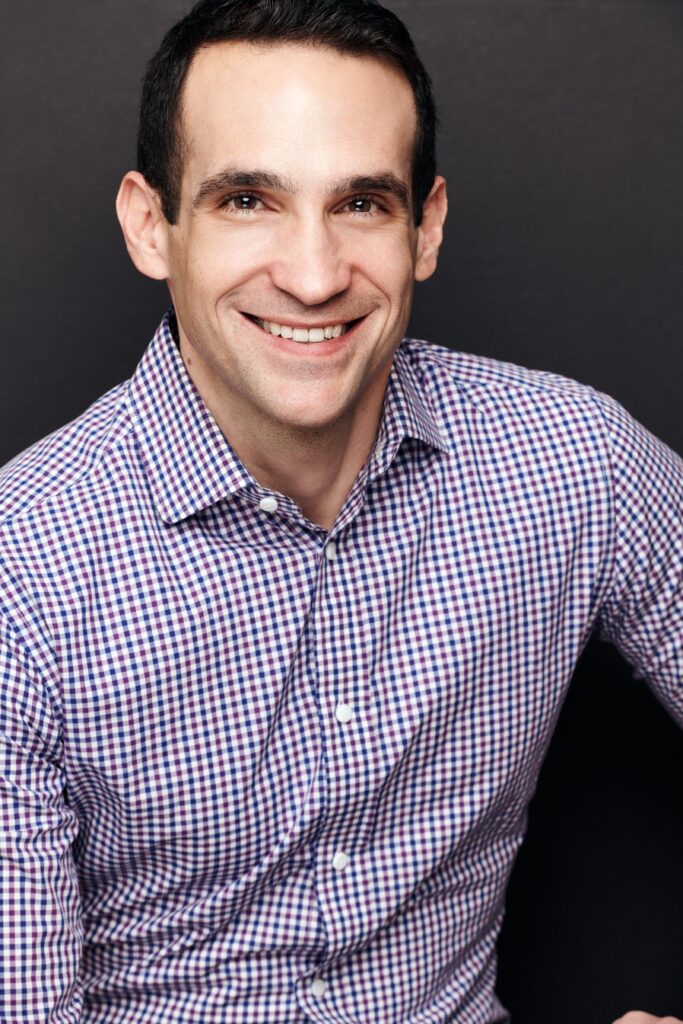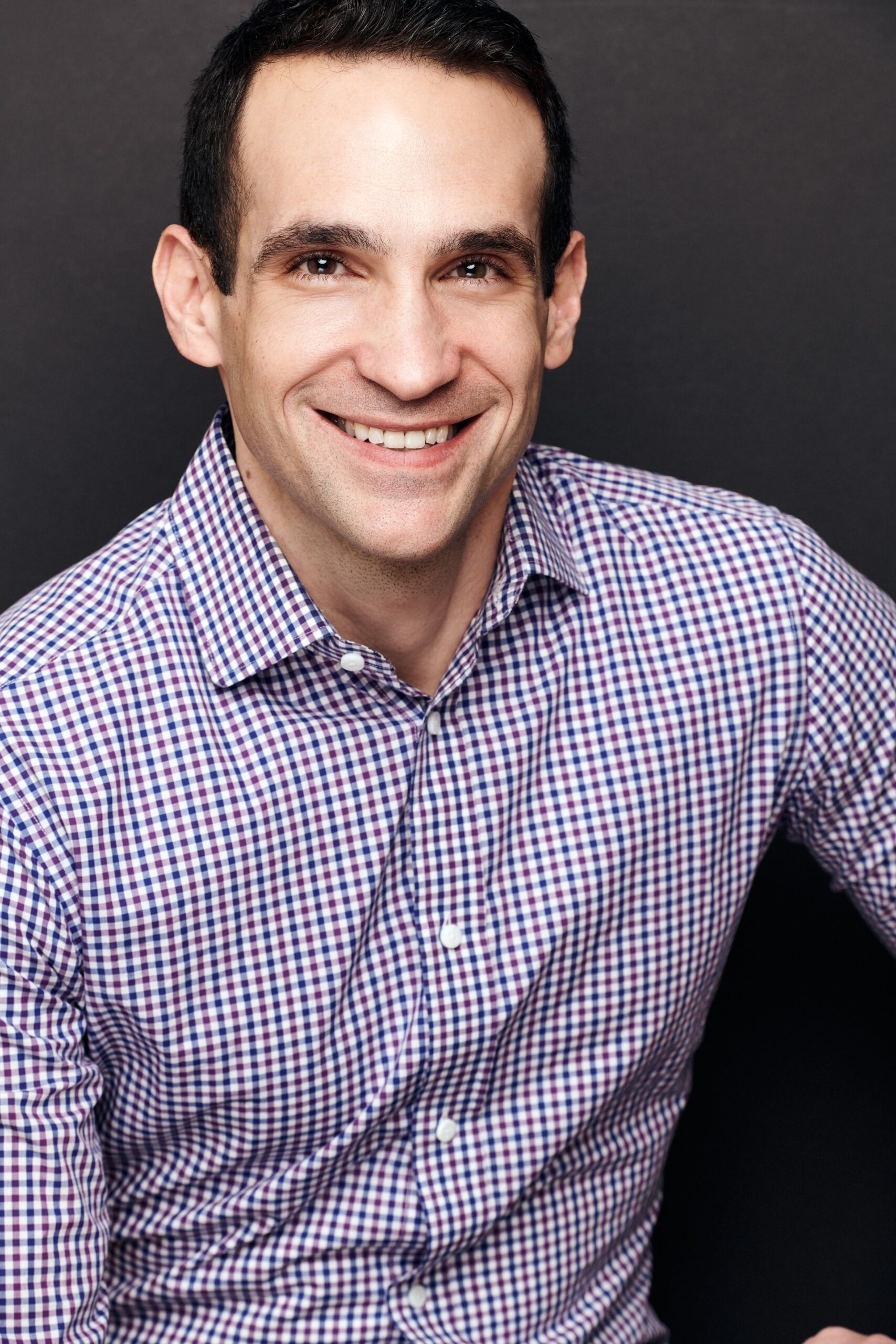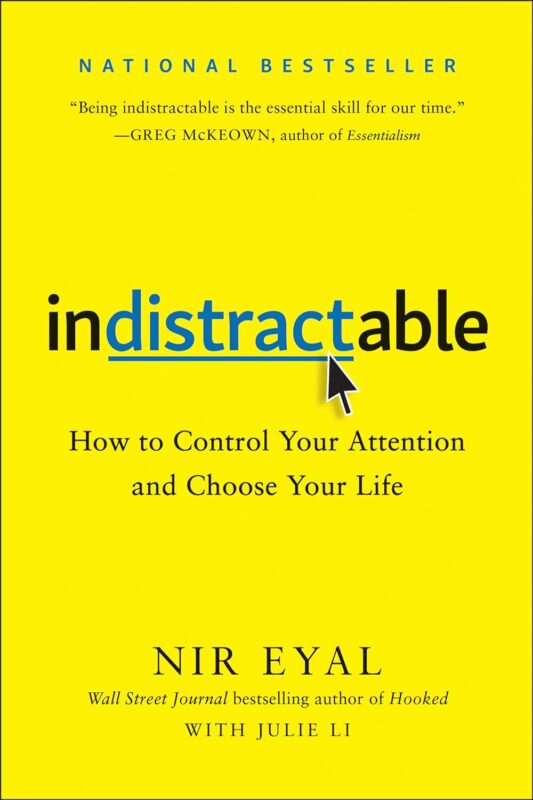
Nir Eyal, a consultant, educator, and author of “Indistractable: How to Control Your Attention and Choose Your Life,” delves into his personal journey with distractions and parenting. He highlights the crucial role of mastering distraction control for success in various life aspects. Eyal points out that despite the vast availability of information in today’s world, the real challenge is to overcome personal distractions. He advocates against a generic approach, suggesting instead that individuals make deliberate choices that reflect their personal values. A key focus of his discussion is on internal triggers, noting that about 90% of distractions are self-originated. Eyal identifies discomfort as a primary cause of distraction and underscores the importance of becoming aware of and managing these emotional states for better self-regulation.
Key Takeaways:
[06:45] Nir Eyal shares that he published the “Indistractable” book before COVID-19, grateful for completing it amid global chaos. Criticizing simplistic advice blaming technology for distractions, he stresses its integral role in the modern world. He also shares that the book covers distractions, especially while working from home, emphasizing that 90% come from within. Nir Eyal challenges the idea that distraction is a recent issue, citing Plato’s writings 2500 years ago. Distractions are not solely due to technology, but a longstanding, complex challenge with deeper roots, requiring a more empowering solution.
[12:15] He shares his realization that the power to be “indistractable” is crucial in every aspect of life, including mental health, physical health, business, and relationships. Nir Eyal argues that controlling attention is essential for acquiring new skills and being productive. The title of the book, “Indistractable,” reflects this focus on mastering attention to shape one’s life. He then addresses the concept of being “hooked” and clarifies that it’s not in opposition to being “indistractable”, believing that it’s possible to leverage psychological tools to create positive habits. He also acknowledges the potential risks of overusing well-designed products, particularly in the realm of media and social platforms.
[18:08] Nir Eyal emphasizes the difficulty in building addictive products and highlights his book’s contribution to applying consumer psychology to habit-forming products. He also discusses his goal of helping individuals turn their values into time and execute their priorities effectively, clarifying that their focus is not on dictating how people should spend their time, but on assisting them in aligning their actions with their values. He argues that the most dangerous distraction is the one unnoticed by individuals, illustrated by personal experiences of getting sidetracked by seemingly productive tasks that deviate from the original plan.
[26:23] Nir Eyal clarifies that the issue with to-do lists is not in using them, but in the way people traditionally use them. He also talks about the importance of moving beyond simply listing tasks and emphasizes the need for a prioritization process. The problems with traditional to-do lists are the lack of constraints, leading to an endless list, and the tendency for people to measure their self-worth based on completed tasks. Nir Eyal challenges the notion of measuring productivity by what is finished, suggesting that the key metric is whether individuals do what they said they would do without distraction. He promotes the “indistractable” method, advocating for focused, distraction-free work in specific time intervals.
[36:56] He introduces the technique of schedule syncing, especially beneficial for those dealing with interruptions from superiors. Nir Eyal describes the process of creating a time box calendar, allowing individuals to physically show their boss how they plan to spend their time. This proactive approach seeks the boss’s assistance in prioritizing tasks rather than bluntly saying no. He emphasizes the effectiveness of schedule syncing not only in corporate settings but also in personal relationships, sharing how it has positively impacted their marriage.
[41:59] Nir eyal shares the changing landscape where information is large, but some challenges come with it such as overcoming distractions. He contradicts a one-size-fits-all approach, but instead encourages individuals to make conscious trade-offs in line with their values.
[48:08] Closing Quote: Remember, the difference between an amateur and a professional is in their habits. An amateur has amateur habits. A professional has professional habits. We can never free ourselves from habit, but we can replace bad habits with good ones. -Steven Pressfield
The Leadership Podcast is sponsored by W.S. Darley & Company.
Founded in 1908, Darley remains a family owned and operated business, providing the highest quality equipment solutions to our country’s warfighters and firefighters.
Learn more at darley.com and darleydefense.com
Quotable Quotes:
“I write books not because of what I know, but because of what I want to know.” Share on X “Let's not glorify the past.” Share on X “Distraction is not a new problem.” Share on X “Anybody who's blessed with opportunities finds themselves struggling with how to prioritize their time and their attention and their life.” Share on X “You cannot be productive unless you know how to focus.” Share on X “How we spend our time is controlled by how we control our attention.” Share on X “Indistractable is about how we break bad habits.” Share on X “You can't just trust what people say because people will say one thing and do something else.” Share on X “The most pernicious form of distraction for leaders is the distraction that you don't even realize is distracting you.” Share on X “If you don't take care of yourselves, you can't take care of other people, you can't make the world a better place.” Share on X “You can't call something a distraction unless you know what it distracted you from.” Share on X “The problem is that despite knowing what to do, people don't do it.” Share on X “The root cause of the problem is an uncomfortable sensation.” Share on X
This is the book mentioned in our discussion with Nir:
Resources Mentioned:
- The Leadership Podcast | theleadershippodcast.com
- Sponsored by | www.darley.com
- Rafti Advisors. LLC | www.raftiadvisors.com
- Self-Reliant Leadership. LLC | selfreliantleadership.com
- Nir Eyal LinkedIn | www.linkedin.com/in/nireyal
- Nir Eyal Twitter | @nireyal
- Nir Eyal YouTube | Nir and Far Blog
- Nir Eyal Facebook | Nir Eyal
- Nir Eyal Instagram | @neyal99





Recent Comments